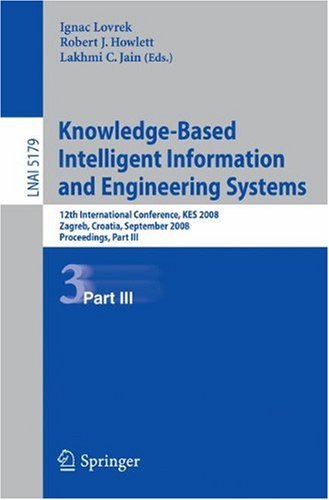

Most ebook files are in PDF format, so you can easily read them using various software such as Foxit Reader or directly on the Google Chrome browser.
Some ebook files are released by publishers in other formats such as .awz, .mobi, .epub, .fb2, etc. You may need to install specific software to read these formats on mobile/PC, such as Calibre.
Please read the tutorial at this link: https://ebookbell.com/faq
We offer FREE conversion to the popular formats you request; however, this may take some time. Therefore, right after payment, please email us, and we will try to provide the service as quickly as possible.
For some exceptional file formats or broken links (if any), please refrain from opening any disputes. Instead, email us first, and we will try to assist within a maximum of 6 hours.
EbookBell Team

4.0
66 reviewsThe three volume set LNAI 5177, LNAI 5178, and LNAI 5179, constitutes the refereed proceedings of the 12th International Conference on Knowledge-Based Intelligent Information and Engineering Systems, KES 2008, held in Zagreb, Croatia, in September 2008.
The 316 revised papers presented were carefully reviewed and selected. The papers present a wealth of original research results from the field of intelligent information processing in the broadest sense; topics covered in the third volume are intelligent data processing in process systems and plants; neural information processing for data mining; soft computing approach to management engineering; advanced groupware; agent and multi-agent systems: technologies and applications; engineered applications of semantic Web; evolvable hardware and adaptive systems; evolvable hardware applications in the area of electronic circuits design; hyperspectral imagery for remote sensing; immunity-based systems; innovations in intelligent multimedia systems and virtual reality; intelligent environment support for collaborative learning; intelligent systems in medicine and healthcare; knowledge interaction for creative learning; novel foundation and applications of intelligent systems; skill acquisition and ubiquitous human computer interaction; smart sustainability; unsupervised clustering for exploratory data anlysis; and use of AI techniques to build enterprise systems.